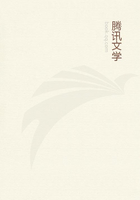
第7章 POLITICAL CONDITIONS(2)
Here was a mass of anomalies,sufficient to supply topics of denunciation for two generations of reformers,and,in time,to excite fears of violent revolution.Without undertaking the easy task of denouncing exploded systems,we may ask what state of mind they implied.Our ancestors were perfectly convinced that their political system was of almost unrivalled excellence:they held that they were freemen entitled to look down upon foreigners as the slaves of despots.Nor can we say that their satisfaction was without solid grounds.The boasting about English freedom implied some misunderstanding.
But it was at least the boast of a vigorous race.Not only were there individuals capable of patriotism and public spirit,but the body politic was capable of continuous energy.During the eighteenth century the British empire spread round the world.Under Chatham it had been finally decided that the English race should be the dominant element in the new world;if the political connection had been severed by the bungling of his successors,the unbroken spirit of the nation had still been shown in the struggle against France,Spain,and the revolted colonies;and whatever may be thought of the motives which produced the great revolutionary wars,no one can deny the qualities of indomitable self-reliance and high courage to the men who led the country through the twenty years of struggle against France,and for a time against France with the continent at its feet.If moralists or political theorists find much to condemn in the ends to which British policy was directed,they must admit that the qualities displayed were not such as can belong to a simply corrupt and mean-spirited government.
One obvious remark is that,on the whole,the system was a very good one --as systems go.It allowed free play to the effective political forces.
Down to the revolutionary period,the nation as a whole was contented with its institutions.The political machinery provided a sufficient channel for the really efficient force of public opinion.There was as yet no large class which at once had political aspirations and was unable to gain a hearing.
England was still in the main an agricultural country:and the agricultural labourer was fairly prosperous till the end of the century,while his ignorance and isolation made him indifferent to politics.There might be a bad squire or parson,as there might be a bad season;but squire and parson were as much parts of the natural order of things as the weather.The farmer or yeoman was not much less stolid;and his politics meant at most a choice between allegiance to one or other of the county families.If in the towns which were rapidly developing there was growing up a discontented population,its discontent was not yet directed into political channels.An extended franchise meant a larger expenditure on beer,not the readier acceptance of popular aspirations.To possess a vote was to have a claim to an occasional bonus rather than a right to influence legislation.Practically,therefore,parliament might be taken to represent what might be called 'public opinion,'for anything that deserved to be called public opinion was limited to the opinions of the gentry and the more intelligent part of the middle classes.There was no want of complaints of corruption,proposals to exclude placemen from parliament and the like;and in the days of Wilkes,Chatham,and Junius,when the first symptoms of democratic activity began to affect the political movement,the discontent made itself audible and alarming.But a main characteristic of the English reformers was the constant appeal to precedent,even in their most excited moods.They do not mention the rights of man;they invoke the 'revolution principles'of 1688;they insist upon the 'Bill of Rights'or Magna Charta.When keenly roused they recall the fate of Charles I;and their favourite toast is the cause for which Hampden died on the field and Sidney on the scaffold.They believe in the jury as the 'palladium of our liberties';and are convinced that the British Constitution represents an unsurpassable though unfortunately an ideal order of things,which must have existed at some indefinite period.Chatham in one of his most famous speeches,appeals,for example,to the 'iron barons'who resisted King John,and contrasts them with the silken courtiers which now compete for place and pensions.The political reformers of the time,like religious reformers in most times,conceive of themselves only as demanding the restoration of the system to its original purity,not as demanding its abrogation.In other words,they propose to remedy abuses but do not as yet even contemplate a really revolutionary change.
Wilkes was not a 'Wilkite,'nor was any of his party,if Wilkite meant anything like Jacobin.
II.The Ruling
Class Thus,however anomalous the constitution of parliament,there was no thought of any far-reaching revolution The great mass of the population was too ignorant,too scattered and too poor to have any real political opinions.So long as certain prejudices were not aroused,it was content to leave the management of the state to the dominant class,which alone was intelligent enough to take an interest in public affairs and strong enough to make its interest felt.This class consisted in the first place of the great landed interest.